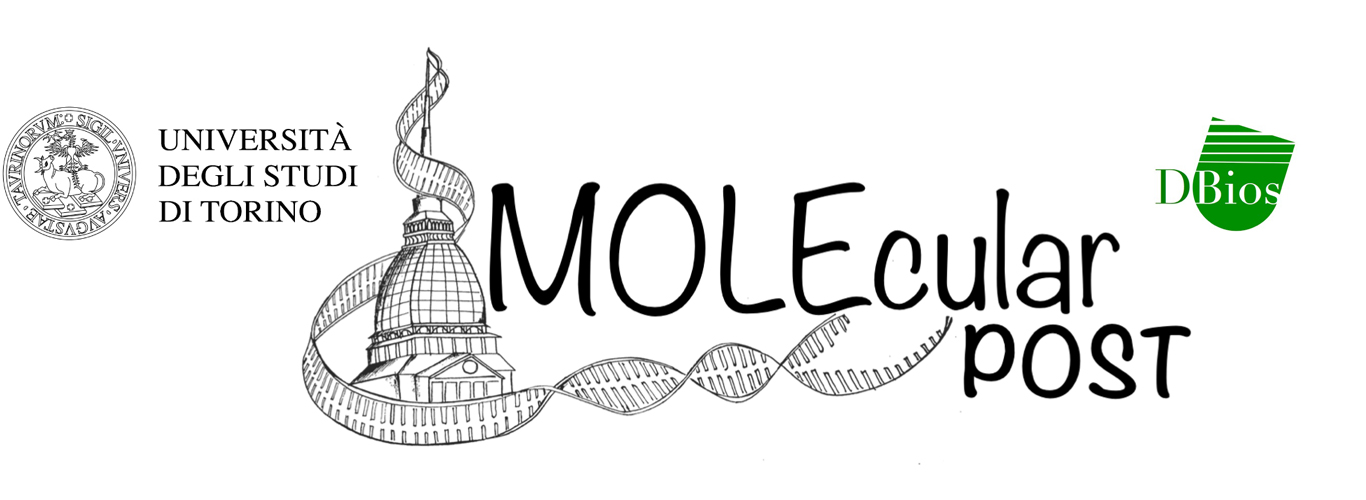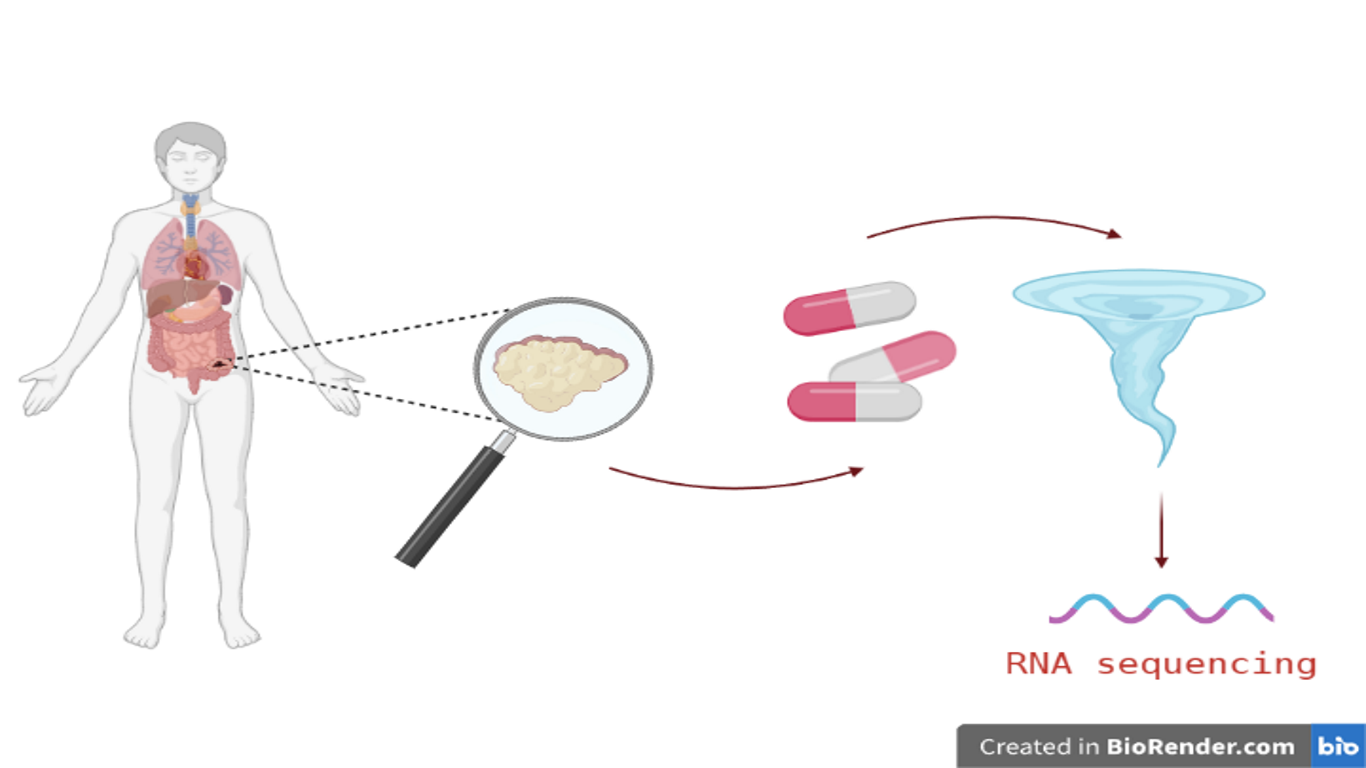Tornado-seq: a new method for anti-cancer drugs screening
Figure 1 – Schematic representation of general idea of Tornado-seq
Abstract
Norkin et al. develop an organoid screening for the analysis of complex biological systems involving many cell types and alternative activation states [1]. This technique, called Targeted Organoid sequencing (TORNADO-seq) analyses the gene signatures, by using targeted RNA-seq, for the evaluation and screening of the cancer organoid phenotypes. The analysis allows the classification of responses to large collections of drugs or other perturbagens at minimal cost. In this study, TORNADO-seq provided insights into the underlying biological mechanisms and signaling pathways involved in colorectal cancer, but this methodology can be employed not only in drug discovery but also in various other fields.
Discussion
Colorectal Cancer
Colorectal cancer (CRC) is in the top 3 most prevalent cause of cancer-related morbidity and mortality, and it remains challenging to treat. CRC tumors exhibit partially differentiated phenotypes with a rudimentary differentiation program, including stem-like cells, which play a role in tumour maintenance and progression[2]. Novel drug-based therapies are urgently needed to complement surgical interventions.
Differentiation therapy has shown promise in regressing CRC by targeting these stem-like cells inducing their differentiation, resulting in tumor regression [3]. Organoid systems, derived from intestinal stem cells, provide a representative model for studying intestinal epithelial differentiation and rare phenotypes. Patient-derived organoids (PDOs) allow personalized therapy approaches. However, conventional assays have limitations in providing comprehensive information on drug action and gene expression.
Following the idea of the differentiation therapy, Norkin et colleagues developed Tornado-seq to isolate drugs that enrich the differentiation in cell phenotypes that are highly efficacious against cancer compared to wild-type organoids. A screening system was developed in organoids, enabling the identification of small-molecule drugs that induce intestinal cell differentiation.
Tornado-seq
The targeted organoid sequencing (TORNADO-seq), is a high-throughput, high-content drug discovery platform that uses targeted RNA-seq to monitor the expression of large gene signatures for the detailed evaluation of cellular phenotypes in organoids. This method involves the use of gene-specific primers with unique molecular identifiers (UMIs) to restrict analysis to selected genes . This system utilizes targeted RNA expression analysis, offering advantages in precision, scalability, and sensitivity. It overcomes technical limitations of classical RNA-seq and can also reduces costs of the assay to $5 per sample, making it an affordable option.
TORNADO-seq, a targeted RNA sequencing method, offers valuable insights into the relationships between signaling pathways and cell types. Through gene co-regulation analysis, it identified strong correlations between absorptive enterocyte differentiation and the downregulation of other cell types. Additionally, it revealed interconnectedness among secretory cell types and molecular pathways like Wnt and Myc signaling. Notably, a decrease in P cell markers was associated with increased proliferation and activation of the Notch signaling. The analysis also uncovered a potential influence of oxygen concentrations on intestinal lineage differentiation. Overall, TORNADO-seq serves as a powerful tool for hypothesis generation in biological systems by uncovering both expected and unexpected interactions.
The screening
The study conducted a screen of 320 FDA-approved drugs to identify compounds that induce intestinal epithelial differentiation in wt and cancer organoids as well as in 4 human CRC cell lines. In wt organoids 27 drugs were classified as differentiation-inducing, with some showing specificity in promoting the enrichment of specific cell types.
The screening was replicated in cancer organoid, more precisely transformed APClof:KRASG12:TP53lof (AKP) organoids obtained from advanced mouse intestinal tumors. AKP organoids showed upregulation of proliferative signatures and downregulation of differentiation markers compared to WT organoids, indicating advanced tumor progression. TORNADO-seq was applied on drug-treated AKP cancer organoids. Differentiation induction was used as a major readout in determining drug activity. Interestingly, drugs that induced differentiation in WT organoids, also affected AKP organoids. Supervised clustering revealed three drug clusters similarly to the clustering in WT organoids. The analysis revealed a striking overlap of drugs affecting both WT and cancer organoids, suggesting similar modes of action of the drugs in either models even though the WT and AKP untreated organoids displayed different transcriptional profiles. 15 out of the 27 drugs revealed a reduction in many ISC genes, while goblet-specific genes were upregulated. Evaluation of gene-gene correlations revealed four differentially affected groups of genes, including proliferation/metabolic genes, G1/S phase genes, cell death/apoptosis genes, and inflammation/stress response genes. Analysis of the expression profiles of these genes showed only partially overlapping responses in WT versus cancer organoids.
Surprisingly, some drugs such as phenothiazines, SERM inhibitors, and antihistamines, showed similar responses to cholesterol-lowering agents like statins and conazoles. Previous analysis suggested that these drugs may affect the cholesterol biosynthesis pathway [4]. Rescue experiments using cholesterol-cyclodextrin complex confirmed the role of cholesterol in the differentiation phenotypes induced by these drugs. Additionally, several drugs exhibited higher potency against AKP organoids compared to WT organoids, indicating potential therapeutic advantages.
Evaluation of the drugs on human CRC cell lines also showed promising results, particularly for statins. These findings suggest that statins, opipramol, and toremifene could be further validated as drug candidates for CRC therapy.
Conclusions
TORNADO-seq is an effective high-content approach for drug discovery in organoids, providing rich data for the analysis of complex phenotypes and drug mechanisms of action (MOA). TORNADO-seq outperforms other methods in terms of feasibility, cost, and applicability to organoid-based screens. The analysis of treated organoids revealed insights into intestinal epithelium organization and signaling networks. Various drugs were identified as potential candidates for colon cancer treatment, including phenothiazines, statins, conazoles, SERMs, and antihistamines. These data reveal that differentiation induction is a common mechanism for anti-cancer drugs, leading to the loss of stem-like cells. TORNADO-seq can be optimized and adapted for different in vitro systems and holds promise for high-throughput drug discovery, personalized medicine, and biological research.
References
- Norkin M, Ordóñez-Morán P, Huelsken J. (2021). High-content, targeted RNA-seq screening in organoids for drug discovery in colorectal cancer
- Li, H., Courtois, E.T., Sengupta, D., Tan, Y., Chen, K.H., Goh, J.J.L., Kong, S.L., Chua, C., Hon, L.K., Tan, W.S., et al. (2017). Reference component analysis of single-cell transcriptomes elucidates cellular heterogeneity in human colo- rectal tumors
- Ordo ́ n ̃ ez-Mora ́ n, P., Dafflon, C., Imajo, M., Nishida, E., and Huelsken, J. (2015). HOXA5 Counteracts Stem Cell Traits by Inhibiting Wnt Signaling in Colorectal Cancer
- Adams, C.M., Goldstein, J.L., and Brown, M.S. (2003). Cholesterol-induced conformational change in SCAP enhanced by Insig proteins and mimicked by cationic amphiphiles

